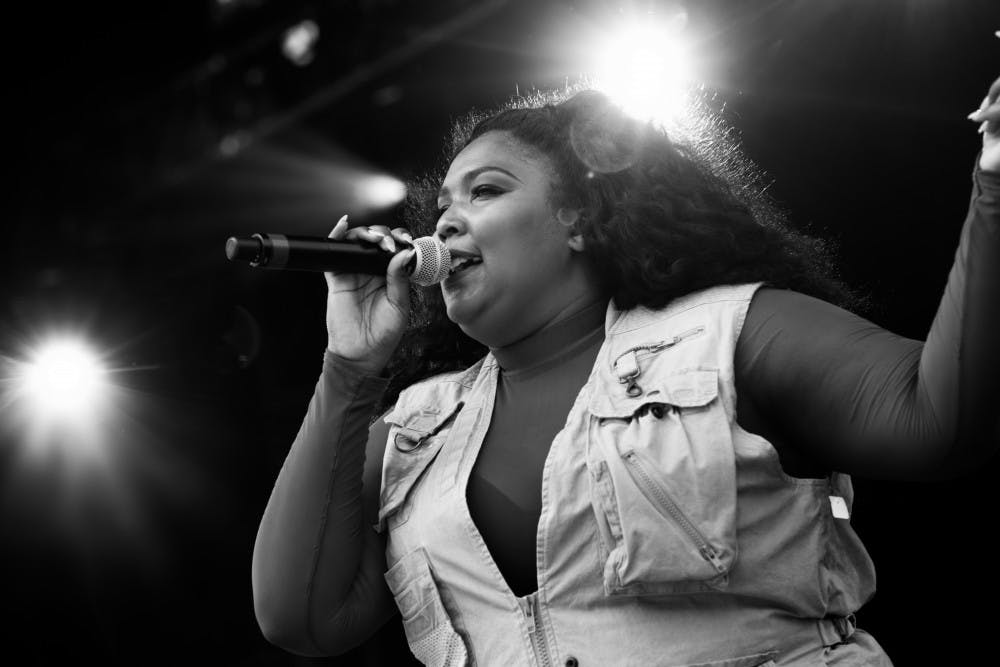Lizzo started her year off right, dropping her single “Juice” onto an unsuspecting world. Drenched in retro synths and hazy guitars, Lizzo fills the song with confidence and swagger, singing, “I'm the pudding in the proof/ Gotta blame it on my juice.” By the time the horn section closes out the song, you can’t help but dance, and Lizzo’s braggadocio is contagious, infecting the listener with positivity and affirmation. For anybody looking for somebody to take the lead in inspiring 2019 goals, Lizzo is not a bad place to start.
Lizzo is the stage name of Minneapolis–raised rapper and singer Melissa Jefferson, who got her start in the indie hip–hop scene of the Twin Cities, honing her craft before gaining a following for her sharply honest music inspired by gospel, trap, and R&B. In 2013, she released her debut album Lizzobangers, produced by Lazerbeak (Doomtree) and Ryan Olson. Her sophomore album, Big Grrrl Small World, shed further light on her viewpoint of body positivity. She followed with her 2016 EP Coconut Oil, and since has been dropping singles here and there, like “Water Me” and “Boys.” Her single off Coconut Oil, “Good As Hell” is a post-breakup song that leaves the breakup–part behind almost immediately and moves straight on to the makeover–and–realizing–your–own–self–worth–part of the story.
On “Truth Hurts,” she comes for men everywhere, singing, “Why men great 'til they gotta be great?/ Don't text me, tell it straight to my face” in the chorus, and reflects on a relationship where the man avoids breaking hard news to her, until she gets fed up and moves on without him. “You're 'posed to hold me down, but you're holding me back/ And that's the sound of me not calling you back,” she sings. Many of her songs focus on relationships and putting herself first, such as in “Water Me,” when she asks for support from her paramour but reinforces that she is free to do as she wishes.
Lizzo has been an advocate for body positivity since she got into the game. At 21, she lost her father and was left homeless, living out of her car, not eating properly and addicted to the gym. She recovered, kept working on her music, and eventually made her way to where she is now through hard work and self–love. “Everyone shouldn’t have to hit rock bottom to love themselves,” she says in an interview with Teen Vogue, “Body positivity only exists because body negativity is the norm.”
Lizzo’s music comes from her family, and what they listened to while she was growing up, including everything from indie rock to gospel and classic rock. Beginning in trap, and now moving towards pop, she is constantly skirting around genres and embracing her own style. The result is entirely fresh and ingenious, her music venturing farther than most would dare go. Although Lizzo’s career has been less straightforward than most, she has taken her struggles and used them to inspire her message of strength and a positive attitude.







